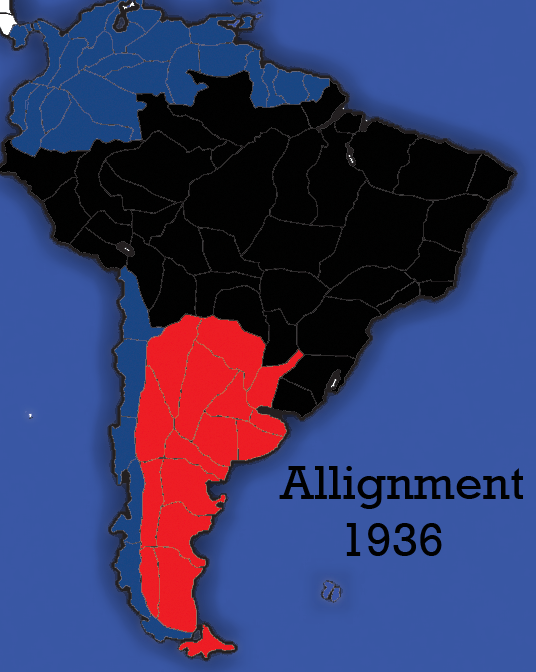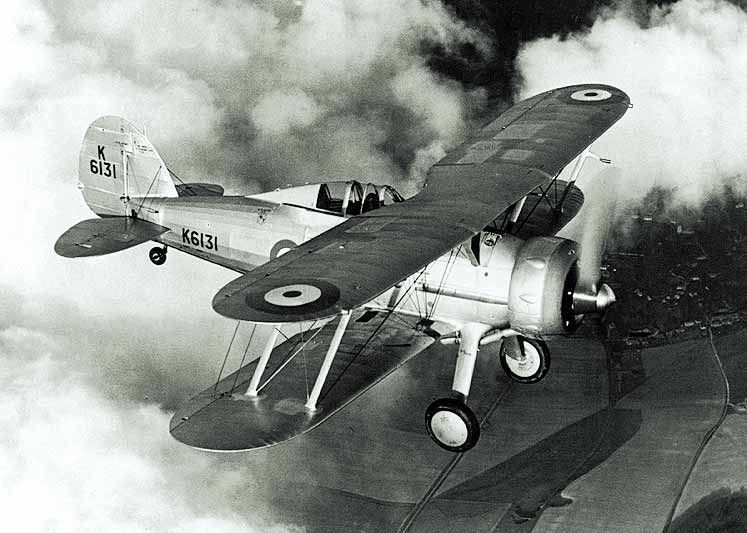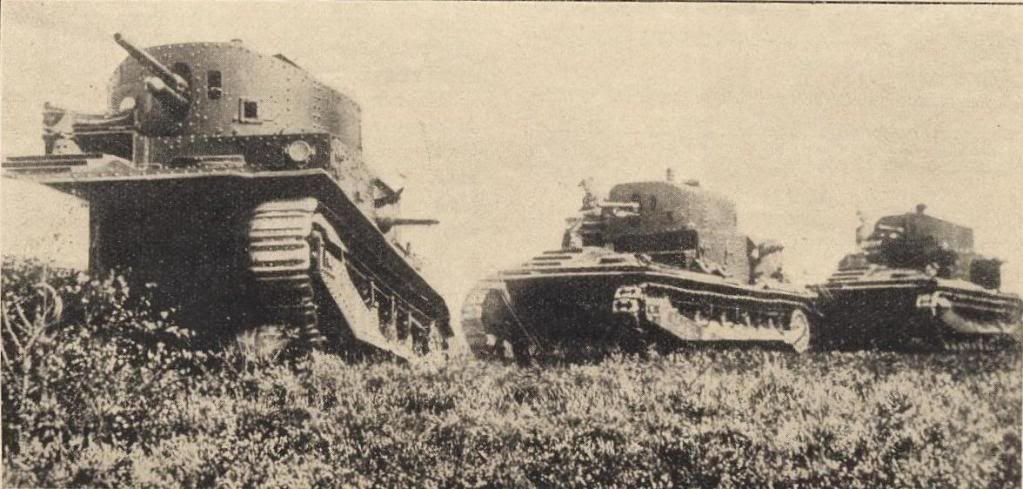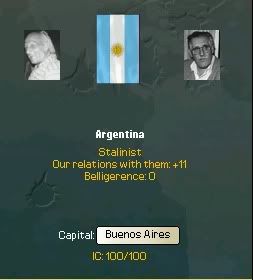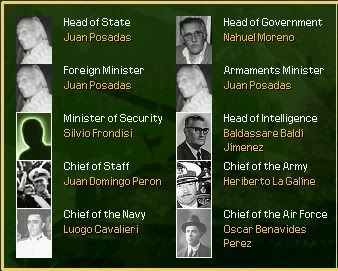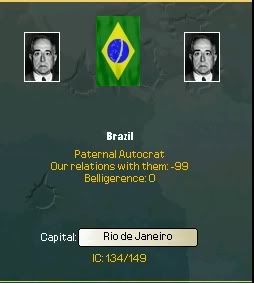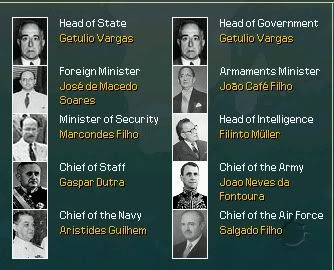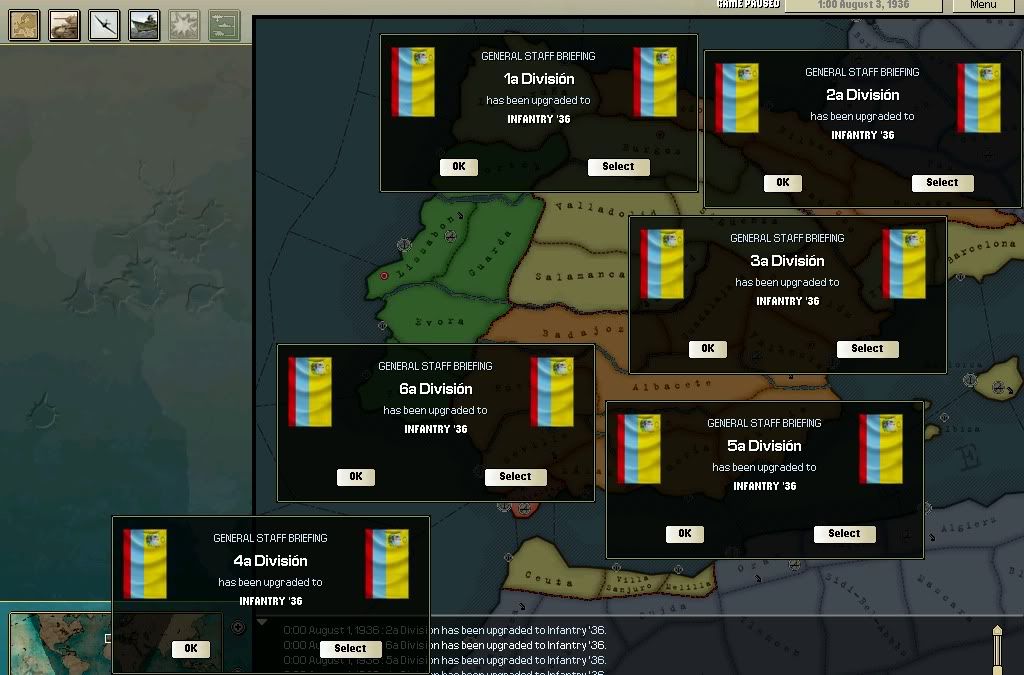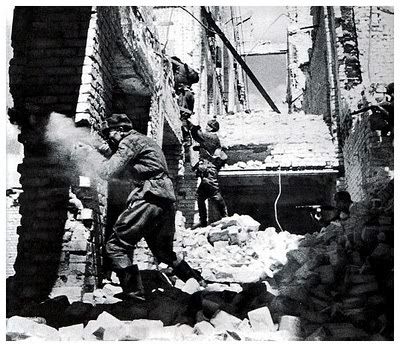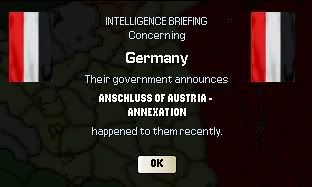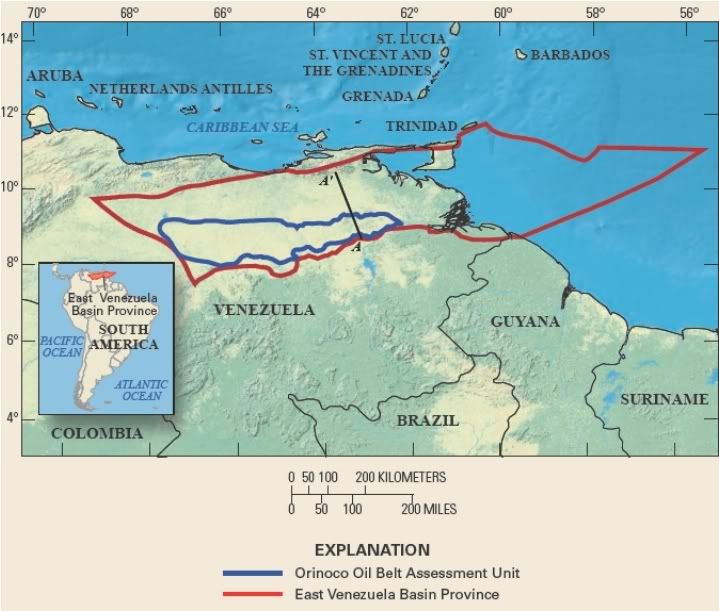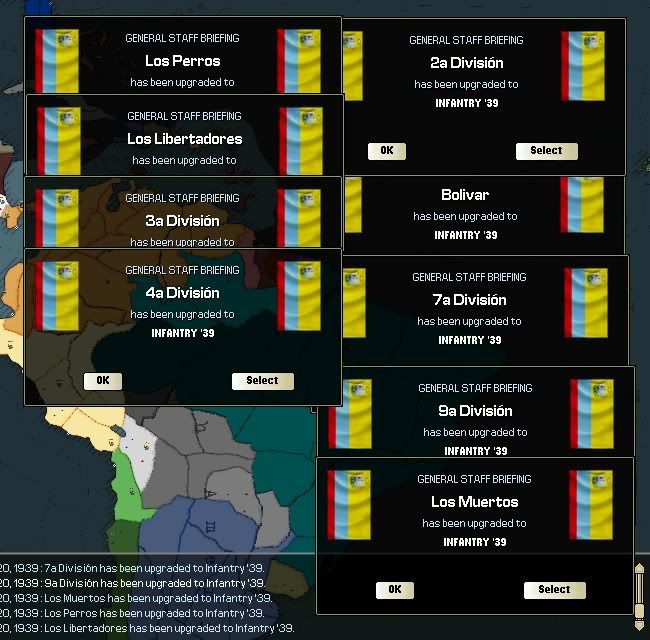April 14th 2003 U.S and Colombian led Invasion of Iraq
Lt. Vasquez manuvered the skies over Baghdad in his F/A 27 "Redención", backbone of the Colombian National Airforce, easily avoiding Iraqi triple A and raining hell from above through surgical strikes on tanks, APCs and enemy ground troops. He had little concern for why he was riding a multi-million peso aircraft over a country which he had not been able to pinpoint on a map or globe until two months ago. All Lt. Hernando Vasquez of the Colombian National Airforce was interested was getting done with his tour and going home, all Lt. Vasquez carried about was fine liquor, fine food, and fine women. Of course any combination of the above would be acceptible for him.
Suddenly an American F-16 flew by close and the very familiar voice of Lt. Stevenson went over the radio.
"So, Vasquez, you ready to bring the pain?" he said in a very cocky voice that seemed to eminate a grin
"What do you think Stevenson?" replied Vasquez, readying his finger over the launch button and waiting for orders, "and don't forget our little deal over who gets more kills, eh?"
Another crack comes over the radio, "Of course how could I forget?" said Stevenson with the same confidence, "You can set the beers on your tab as of now."
A crack over the radio once again, except this time from HQ,
"All hawks, all hawks, release the pain, do so at own discretion and be mindfull of friendly fire." said the operator in Spanish.
"Well sure as hell don't want to argue with HQ, now do I?" Said Vasquez to himself before fireing at several Iraqi armor and APCs.
-------
-----
Well here I am again! Guess maybe the third time will go over better, this time I will not go over the history of this Colombia and will get right into the action (I hope). I found that spending too much time was spent telling history and I simply became bored, so I hope third times the charm?
Lt. Vasquez manuvered the skies over Baghdad in his F/A 27 "Redención", backbone of the Colombian National Airforce, easily avoiding Iraqi triple A and raining hell from above through surgical strikes on tanks, APCs and enemy ground troops. He had little concern for why he was riding a multi-million peso aircraft over a country which he had not been able to pinpoint on a map or globe until two months ago. All Lt. Hernando Vasquez of the Colombian National Airforce was interested was getting done with his tour and going home, all Lt. Vasquez carried about was fine liquor, fine food, and fine women. Of course any combination of the above would be acceptible for him.
Suddenly an American F-16 flew by close and the very familiar voice of Lt. Stevenson went over the radio.
"So, Vasquez, you ready to bring the pain?" he said in a very cocky voice that seemed to eminate a grin
"What do you think Stevenson?" replied Vasquez, readying his finger over the launch button and waiting for orders, "and don't forget our little deal over who gets more kills, eh?"
Another crack comes over the radio, "Of course how could I forget?" said Stevenson with the same confidence, "You can set the beers on your tab as of now."
A crack over the radio once again, except this time from HQ,
"All hawks, all hawks, release the pain, do so at own discretion and be mindfull of friendly fire." said the operator in Spanish.
"Well sure as hell don't want to argue with HQ, now do I?" Said Vasquez to himself before fireing at several Iraqi armor and APCs.
-------
Colombia, a country born of the blood, sweat and tears of its citizens. In 1813with the help of British arms and supplies, Colombia waged a decisive war against royalist forces in the Viceroy of New Granada, which after almost a decade left nearly 25% of the white male Colombian population dead, but doing a much larger scar upon Spain, as most Spanish held colonies in South America took the initiative and with the help of Simon Bolivar, El Libertador as he is known across the continent, threw thier shackles off and declared independence.
Colombia, a country baptised by fire, as it struggled for dear life against the juggarnaught Brazil in its infancy, a war drawing itself into a bloody and ruthless stalemate in the forests of the Amazons leading only to a peace settlement that solved none of the inital problems that started the war. And the American Civil War in which Colombia sent several expeditionary forces to the Union allowing them to bolster their front lines against the Confederate onslaught. And not to forget the Spanish-American War in which Colombia took Puerto Rico on its own, all the while saving American General Theodore Roosevelt and his "Rough Riders" in Spanish Cuba.
And now finally Colombia's involvment in the Great War. As a way to "pay their debt of honor" Colombia openly joined the Entente during 1914 against the Central Powers. As the fighting slowly stopped to a halt in Belgium, that debt was paid in the blood of millions of Colombian men, only broken by the United States involvement that finally broke the back of the German War Machine. And finally after the armstiance did Colombia know peace, after the war Colombia only had millions dead, millions wounded and many more with not just physical but mental scars as well.
Colombia drew into a long period of isolation and let the world go by, but recently things have been changing due to the Great Depression radical regimes have taken hold. Facist uprisings all over South America have risen. One by one, Peru, Brazil, Paraguay, Uruguay and Bolivia fell to the new autocratic regimes. As well as the new People's Republic of Argentina, a communist nation that remains an enigma. Now all the cards fall upon the table, Colombia and Chile remain the only democracies in South America and with the facists aligning themselves with Germany, proclaiming themselves the "South American Axis" only time will tell who will prevail.
Colombia, a country baptised by fire, as it struggled for dear life against the juggarnaught Brazil in its infancy, a war drawing itself into a bloody and ruthless stalemate in the forests of the Amazons leading only to a peace settlement that solved none of the inital problems that started the war. And the American Civil War in which Colombia sent several expeditionary forces to the Union allowing them to bolster their front lines against the Confederate onslaught. And not to forget the Spanish-American War in which Colombia took Puerto Rico on its own, all the while saving American General Theodore Roosevelt and his "Rough Riders" in Spanish Cuba.
And now finally Colombia's involvment in the Great War. As a way to "pay their debt of honor" Colombia openly joined the Entente during 1914 against the Central Powers. As the fighting slowly stopped to a halt in Belgium, that debt was paid in the blood of millions of Colombian men, only broken by the United States involvement that finally broke the back of the German War Machine. And finally after the armstiance did Colombia know peace, after the war Colombia only had millions dead, millions wounded and many more with not just physical but mental scars as well.
Colombia drew into a long period of isolation and let the world go by, but recently things have been changing due to the Great Depression radical regimes have taken hold. Facist uprisings all over South America have risen. One by one, Peru, Brazil, Paraguay, Uruguay and Bolivia fell to the new autocratic regimes. As well as the new People's Republic of Argentina, a communist nation that remains an enigma. Now all the cards fall upon the table, Colombia and Chile remain the only democracies in South America and with the facists aligning themselves with Germany, proclaiming themselves the "South American Axis" only time will tell who will prevail.
-----
Well here I am again! Guess maybe the third time will go over better, this time I will not go over the history of this Colombia and will get right into the action (I hope). I found that spending too much time was spent telling history and I simply became bored, so I hope third times the charm?



